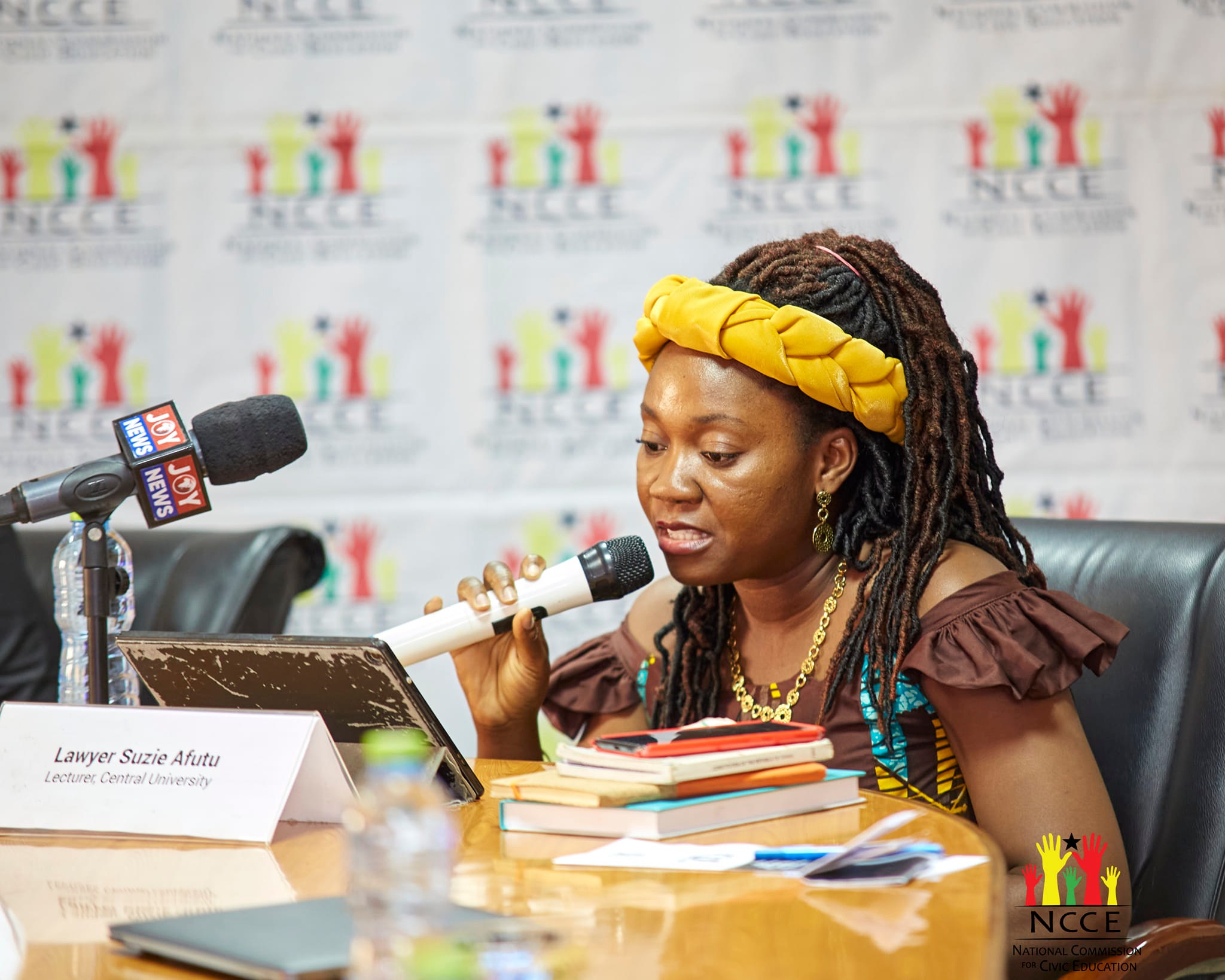Constitutional Law lecturer suggests minimalist approach to constitutional reforms
She spoke as part of a panel on Tuesday, during a mini-review discussion held by the National Commission for Civic Education (NCCE), on the Constitutional Review Commission’s (CRC) Report and the government White Paper on the CRC findings.

A Constitutional Law lecturer at the Central University Faculty of Law, Susanna Afutu has recommended that efforts to make amendments or reviews to the constitution, 1992, should take a minimalist approach.
She spoke as part of a panel on Tuesday, during a mini-review discussion held by the National Commission for Civic Education (NCCE), on the Constitutional Review Commission’s (CRC) Report and the government White Paper on the CRC findings. The meeting was also to engage CSOs on constitutional reforms.
While noting that since the CRC report in 2010 there had been some constitutional amendments, she said “It is my considered opinion that a minimalist approach would be met with greater success than a sweeping attempt at an overhaul of the Constitution.”
She further explained that her preposition would seek to serve the country better since there isn’t absolute consensus on some of the recommendations of the CRC findings, like that of the “election of the MMDCEs by universal adult suffrage.”
Her presentation also supported recommendations of the CRC report on the independence of the National Development Planning Commission (NDPC), which the government White Paper had rejected, as well as the capping of Supreme Court justices, and human rights.
“The suggestion that the NDPC should not be dependent merely on allocations from the national budget but that a fund be established to finance its activities is a laudable one. In terms of its membership, one way to achieve independence would be for the tenure of members to overlap that of the presidency; in other words, it should not run concurrently with it.”
There have been recent calls for a review of the 1992 Constitution, with some calling for a complete do-away with the current constitution.
In March, when the National Commission for Civic Education (NCCE) held its constitution week public lecture to mark 30 years of the referendum adopting the 1992 Constitution, Justice Pwamang of Ghana’s Supreme Court noted that calls for constitutional reforms must not be dismissed.
“The recent remarkable constituency with which discussions about the constitution has been embarked on by actors at various levels of our national life is in itself very laudable.
These discussions apart from engendering higher commitment to the principles of our constitution, and compelling strict observance of them, by persons who are entrusted with statutory authority, they also point out areas of the constitution that do not appear to be working smoothly, and needs modification,” he said.


